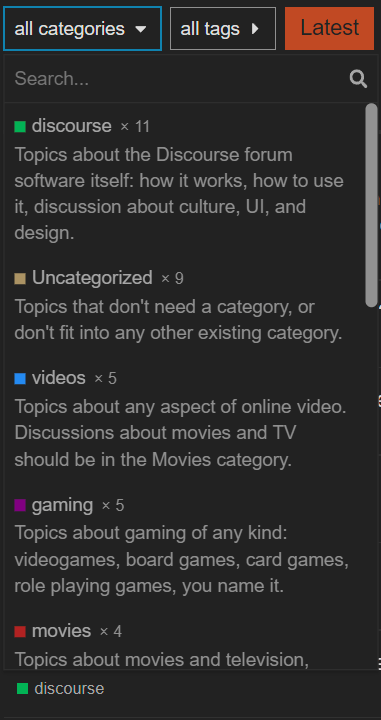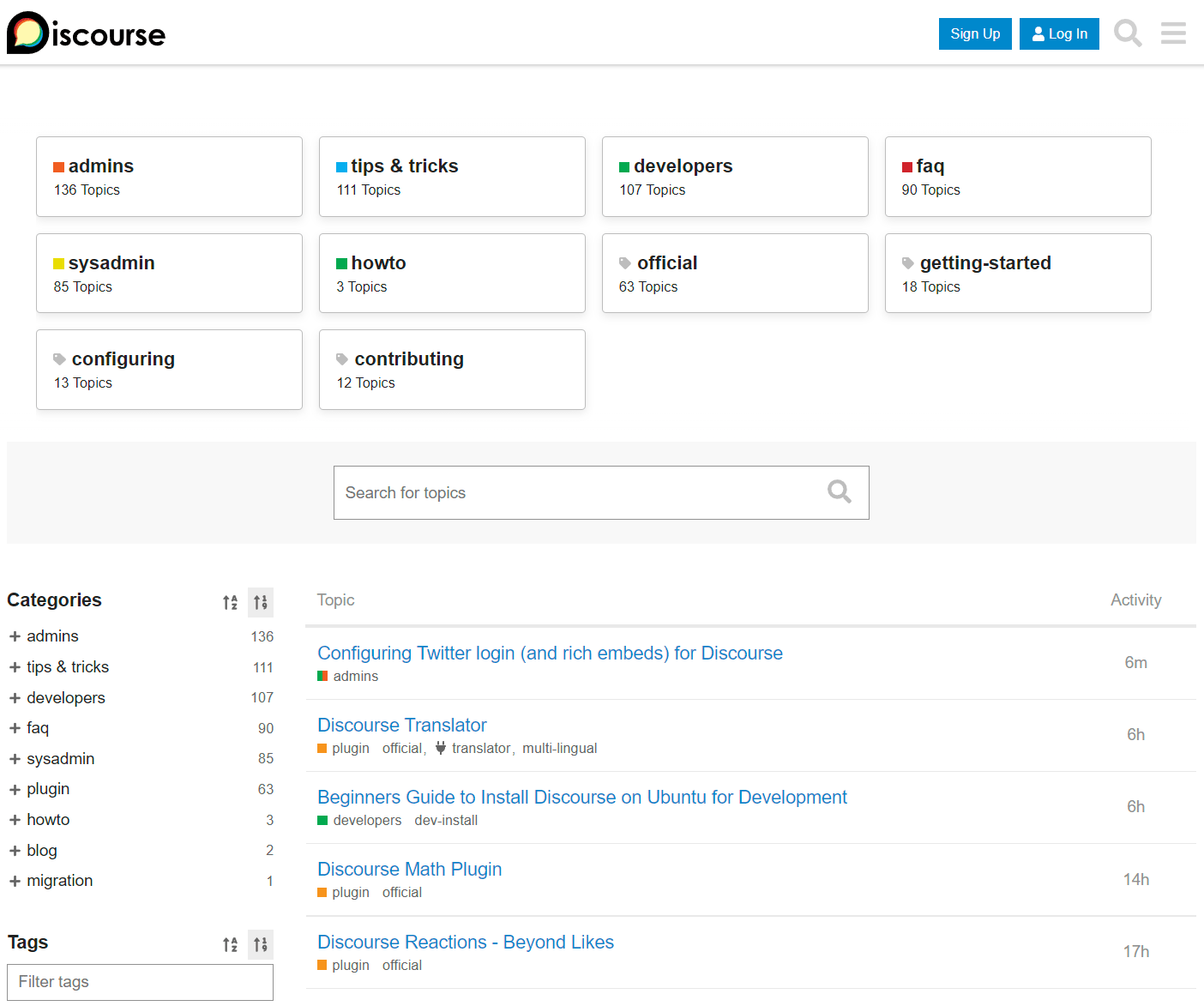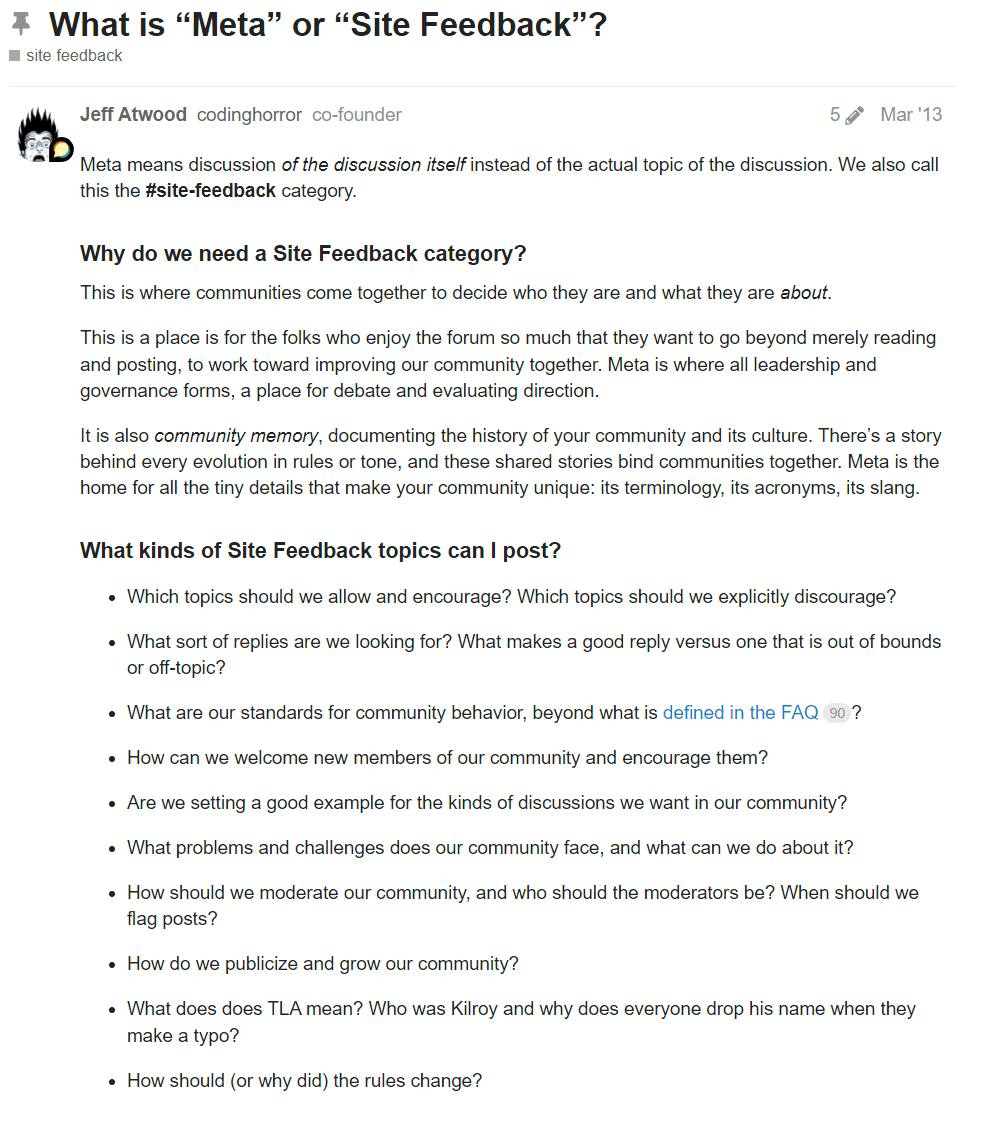Organizing Your Online Community

Organization, while it may seem straightforward, is a crucial component of building a healthy community. How effectively your community is organized can affect just how much new and existing members engage with one another.
In this article, we'll unpack five tips to help you start organizing your community effectively, including:
- Start Simple
- Create Categories as Broad Discussion Areas
- Use Tags for Smaller Areas
- Prune Topics as Necessary
- Make Improvements as You Go
Let's dive in!
Start Simple

When thinking about any kind of organization, it's incredibly easy to over-think it. Start dreaming about the possibilities for your community and pretty soon you have an abundance of places to chat. This is a good way to brainstorm ideas, but some editing is required to create the best possible experience.
Especially for budding communities, more structure can mean creating a paradox of choice for your newest members. A paradox of choice is when there are so many options presented that you become overwhelmed, and, therefore, make no choice. Said otherwise, having too many places to talk may very well stop potential new members from participating in the first place.
Instead, for many small, early stage groups, it's best to start with one to three categories. People can easily decide where a conversation should go with fewer options available. This increases the possibility for engagement, which is one of the hardest aspects of community management. The fewer obstacles to engagement the better.
Pro-Tip: You might be wondering about the discussions that don't fit into that small number of buckets. This is why Discourse ships with an Uncategorized category by default. If a discussion doesn't fit into an existing category, it can go there.
It may also be tempting to forego any kind of organization to start, but that can have its own implications. Structure gives visitors a sense of what your community is about. If someone finds your community and sees a variety of topics about music, football, and game development, they're going to have a difficult time understanding what's going on. If those football and music discussions are in an Off-Topic category, then it's easier to tell that your community is actually about game development.
Create Categories as Broad Discussion Areas

In Discourse, categories are where topics live. A topic must always have a category, whether it's uncategorized or otherwise. When organizing your community, it's helpful to think of these categories as broad discussion areas.
Ask yourself the question, “What's the broadest topic area you want your members to engage in?” If you're a product community, there might be areas like feature requests and support. For a creator, this may be new content, Q & A, or a special area for supporters.
With categories, it's important to make the distinctions clear. Think of them like the sections of a newspaper. There are no classified ads in the world news section, nor opinion pieces in the local news. That's because the boundaries are clear on what goes where in a newspaper. It should be the same for your community.
Category names go a long way in making this distinction. Use recognizable names for categories so members can easily understand what discussions go there. Additionally, make sure to edit the category descriptions (topics generated automatically on category creation). New users will see these in the category dropdown in case there's any confusion on what a category is for.
Use Tags for Smaller Areas

If categories are broad topic areas, tags can be thought of as smaller, focused groupings of discussions. Tags group discussions together and can span across categories. For example, on Discourse Meta, we use tags to tie together support, bug, and feature request topics for official plugins. This gives the owner of a plugin an easy place to find work to be completed.
Sometimes tags serve as a way to organize a small group of discussions. Also on Discourse Meta, we have a few tags designated solely for making it easy to find resources to get started with Discourse. Click the tag in our Docs section and you have all the resources you need to get going.
While it's not recommended to have a large number of categories, go crazy with tags! The presence of a number of tags won't confuse your community members about where their discussions should go -- in fact it may help them better find the discussions they wish to participate in. Your community can even create new tags, which is helpful for self-organizing communities.
Prune Topics as Necessary
In addition to creating the right buckets in which conversations live, part of organizing your community is pruning and moderating the discussions happening. This can happen in a few ways.
- Editing topic titles - A title that doesn't represent the discussion happening inside creates a number of problems, from readers feeling misled about its contents to searchers being completely unable to find the discussion in the first place. To avoid this issue, regularly edit topic titles to clearly reflect the discussion happening within.
- Split topics - Communities are made of people, and people love rabbit trails. It's no surprise then that online discussions go off track! It's okay for that to happen, but be sure to split those posts out into a separate topic. This is especially crucial for conversations that have a specific end goal in mind (like a support question).
- Move topics - Sometimes it's unclear where a certain discussion fits on a forum, so its creator makes a best guess and misses. Other times, a topic starts off needing to be in one category, but as the discussion unfolds, it's apparent it belongs somewhere else. When you find these types of topics, move them to the correct place.
Make Improvements as You Go

Remember, you don't have to have this figured out all at once! Especially for a new community, start small, but don't be afraid to make changes as you go. Your community members (or your analytics) will tell you when something isn't working.
This is why it's important to keep an open door for feedback. The simplest way to ask for feedback? Create a category in your community specifically for this! Discourse ships with a Site Feedback category for this purpose. When you have an open, visible place to provide suggestions for improvement, your community members know where to share them.
In terms of organization, don't be afraid to demote a category to a tag. If you try a category and it doesn't catch on, tag those topics with the category name, move the discussions to a more appropriate category, and close the old one off. Alternatively, sometimes a tag gets a lot of use. If that happens, promote it to a category.
There will also be times where your community creates tags serving the same purpose. They might even be two different names for the same thing. Discourse has a tag synonym feature which merges two tags together into one. This is extremely helpful for communities who have a lot of user-generated organization as a way to help keep things clean and clear where discussions go.
Lastly, iterate with small changes. When an approach doesn't work, the easy way out is to start over from scratch and try again. You don't have to do this, nor is it the best way to go. Instead, try to understand the problem your community members are having by getting feedback, asking questions, and narrowing the problem to its smallest possible scope. From there, devise a strategy and make a change. Test it out. If it works, great! If not, try another solution. Many smaller changes over time can have a bigger impact than a few major ones. Plus, smaller changes are easier to digest for long-time community members who are used to the way things were.
Help People Find What They Need
Creating a community is all about bringing a group of people together. Organizing that community is one way to make it easier for members to engage, cooperate, and connect.
But what about you? Have you found any particular community organization strategies helpful? If so, I'd love to hear from you in the discussion linked below.
